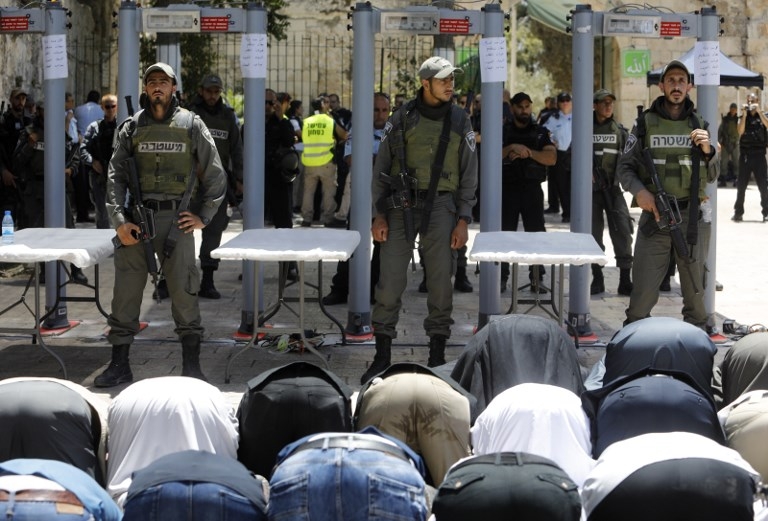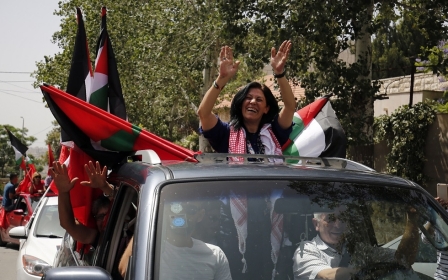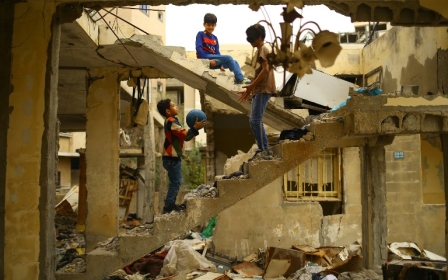Israel reopens sensitive Jerusalem holy site, but Muslims refuse to enter

Israel reopened an ultra-sensitive holy site on Sunday closed after an attack that killed two policemen, but Muslim worshippers were refusing to enter due to new security measures including metal detectors and cameras.
Crowds chanted "Allahu Akbar" (God is Great) as a number of initial visitors entered Jerusalem's Haram al-Sharif compound, known to Jews as the Temple Mount.
The flashpoint holy site includes the Al-Aqsa mosque and the Dome of the Rock.
But midday Muslim prayers were held outside the site due to the new security measures.
"We reject the changes imposed by the Israeli government," Sheikh Omar Kiswani, Al-Aqsa director, told reporters outside.
"We will not enter through these metal detectors."
Some women wailed and cried while telling people not to enter.
Jordan says escalation must be avoided
Israeli Prime Minister Benjamin Netanyahu spoke of the security measures late Saturday before departing for a trip to Paris.
"This evening I held a discussion with the top security leadership and I instructed that metal detectors be placed at the entrance gates to the Temple Mount," he said.
"We will also install security cameras on poles outside the Temple Mount but which give almost complete control over what goes on there."
Netanyahu spoke by phone with Jordan's King Abdullah II on Saturday night, a statement from Amman said.
Abdullah condemned the attack, but also called on Netanyahu to reopen the Al-Aqsa compound and stressed the need to "avoid any escalation at the site".
Three Arab Israeli assailants opened fire on Israeli police Friday in Jerusalem's Old City before fleeing to the compound.
Israeli authorities said they had come from the flashpoint holy site to commit the attack.
Israel took the highly unusual decision to close the Al-Aqsa mosque compound for Friday prayers, triggering anger from Muslims and Jordan, the holy site's custodian.
The site remained closed on Saturday, while parts of Jerusalem's Old City were also under lockdown.
Israeli authorities said the closure was necessary to carry out security checks and announced it would reopen the compound Sunday.
Police said on Sunday that so far two gates leading to the holy site had been opened, equipped with metal detectors.
Middle East Eye propose une couverture et une analyse indépendantes et incomparables du Moyen-Orient, de l’Afrique du Nord et d’autres régions du monde. Pour en savoir plus sur la reprise de ce contenu et les frais qui s’appliquent, veuillez remplir ce formulaire [en anglais]. Pour en savoir plus sur MEE, cliquez ici [en anglais].




